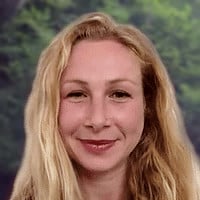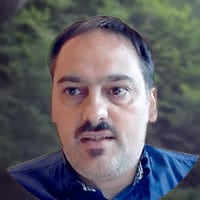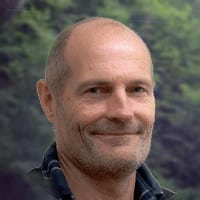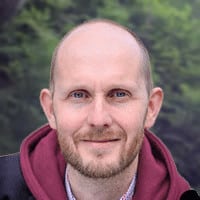Abdeslam Badre
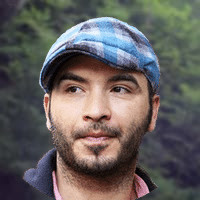
Mohammed V University, Rabat, Morocco
Youth, women, and immigration are three categories which are the backbone of any society. Therefore, it is important to involve young people and women in the political debate. Can sociological research help us to make our society better? How can sociological research be translated into policies, not only on paper, but in real life? Abdeslam Badre will answer these questions in this interview.

Badre: My name is Abdeslam Badre, I was born in Casablanca – Morocco; I work at Mohammed V University and I’m a social scientist.
Nerina: What are your main research topics?
Badre: Currently, I’m working on women, youth, migration, and policy developments.
Nerina: Why are you so passionate about these topics?
Badre: Why not?
Nerina: Yes, for example.
Badre: Why? Because well, I think these are the three main categories that are the backbone of any society. When we talk about youth, we are talking about a very important group within the community or society especially in our region where the youth bulk is bigger than any other age groups. We talk about women because I think women are about half of the society. Migrants as you can see, all the political and economic changes and challenges around the world nowadays between Europe and the Middle East are because of the influx of migration and refugees, and that would destabilize the region. It could also contribute to prevailing peace if the question of migration is managed in a human, fair and beneficial manner, I guess.
Nerina: What are the big issues that you want to address?
Badre: There are various issues; I’d like to see how for example research-based and fact-based finding could be translated into policies that would target directly the livelihood of women, youth, and migrants, not only on paper but in real life.
Nerina: How could we help this become a reality?
Badre: This is a very complex question in the sense that it entails different stakeholders. It’s not a question that researchers are going to solve by themselves, and it’s not something that only politicians can solve by themselves. Of course, they can use it as a slogan for political campaigns and editorial campaigns, but trust me, by themselves, they would not be able to solve it because it’s complex and challenging. It needs the synchronizing of the efforts of policy makers, researchers, civil society, media, school, education system, and the people themselves.
Nerina: Perhaps it’s a difficult question, but is there one idea that you would suggest to change the situation of women, youth, or migration?
Badre: For each group, there are different challenges. At some point, they intersect, they cross-cut along the spectrum, but for each group, they have their different problems, and for each region of each group, there are specific and general problems. For example, if we talk about the youth in the Arab region, one of the very simple solutions I suggest is to involve them. Because right now in the MENA region, we are talking about building up democracy or democratizing institutions and the society, like when you talk to politicians they tell you, okay, we are in a democratization process.
So that’s one suggestion, including young people in the debate over the democratization of institutions, democratization of the society and public sphere. Women in my region, in the Middle East and North Africa, when you look at papers and documents, of course, all documents are talking about empowering women: going to work and an egalitarian kind of approach to women in economy and politics, but reality says something totally different.
One of the things we can do, a very simple thing to bring some of the taken rights to women, is to involve them in these debates, because the debate itself, when we talk about “women should be given their right, women should be empowered”, the people talking about these things or making those claims are men. Let women express their needs and what they need, what they want, and what they don’t want. Also, it’s a question of integration, a question of inclusion. Migrant development for example, in Morocco in the past, Morocco used to be an exporter of Migrants to Europe. It was a country from which a lot of Moroccans would migrate to Europe and North America legally, or illegally. And then Morocco became a transit country for sub-Saharan migrants. Nowadays, we’re talking about Morocco as a host of sub-Saharan migrants. The three phrases Morocco has been through: it moved from exporting migrants to transiting migrants, and now to hosting migrants.
The people working in the field of migrant management in Morocco are not well trained. So maybe, if we could provide some capacity building for these people who are working on the issue of migration, let’s provide them with some capacity building training whether in Europe or we can bring some European expats or American expats to train these people on how to deal with migration crisis management in Morocco.
Nerina: Is there a country that you can look at for migration for example that you believe is a good example of how to deal with migration?
Badre: Canada. I think in the world nowadays, the best model of migration integration is Canada. It proved to be more efficient, based on respect and win-win situation.
Nerina: How important is inter-disciplinarity? Think of the international research communities. What do we need more of?
Badre: It’s as important as the internationalization of science. I always talk about this issue of inter-disciplinarity and cross-continental collaboration. Cross-continental collaboration which is a horizontal dimension and then inter-disciplinarity which is a vertical dimension, so I think if we bring these two dimensions together, we will be able to get better results than if we’re just analyzing phenomena independently from the context or from society.
If we’re looking at immigration for example, and we try to just solve the problem of immigration from within the lenses of migration studies, I think we will stay there, we’ll not come with any tangible results or solutions that could be duplicated in any migration crises in any part of the world. That’s why, if we go through inter-disciplinary analysis or research, we’ll be able to look at phenomena or problems from different angles. We’ll look at it from the perspective of social scientists, psychologists, politicians, economists, media specialists, and these would give us a better idea, not only a better idea on how to understand the problem, but also how to solve it, and maybe how to prevent it from happening again.
Nerina: Did your research change you in some way?
Badre: Yes, of course. It changes my perception of the world and it changed how I see myself, how I see the relationship between the elements in the world, how I see the relationship between society and the environment within which we live in. It helped me understand a lot of things, and it also helped me question many things some of which I still don’t understand. The more research you do, the better understanding about how ignorant you’ve become, you understand how much, because each time you discover something, you just discover how much you still don’t know. So doing research is just a quest for the size of your ignorance, I guess.
Nerina: What kind of society do you dream of?
Badre: A less violent society.
Nerina: What is life about?
Badre: Life. I think, well, that’s a big question. I mean in my very humble perspective, life is a path, a walkway. It’s a road people can take. Some people take it silently and leave it. They don’t leave any sign that they were there. Some people leave a sign but a very destructive sign – a sign that shows destruction, ruins, and catastrophes. Some people leave signs of hope, of good things. So I hope that while walking through that road I will leave some good signs.
Nerina: Thank you very much for a great interview!
Abdeslam Badre is a social scientist with a strong research interest in Policy Development in the fields of Gender, Youth, Higher Education, Professional Leadership and Migration, Transformational Political Economy and the Media, especially in the context of Africa and the EU-Southern Mediterranean Cooperation. Listen to our #followup conversation with Badre last September.

Mohammed V University, Rabat, Morocco


